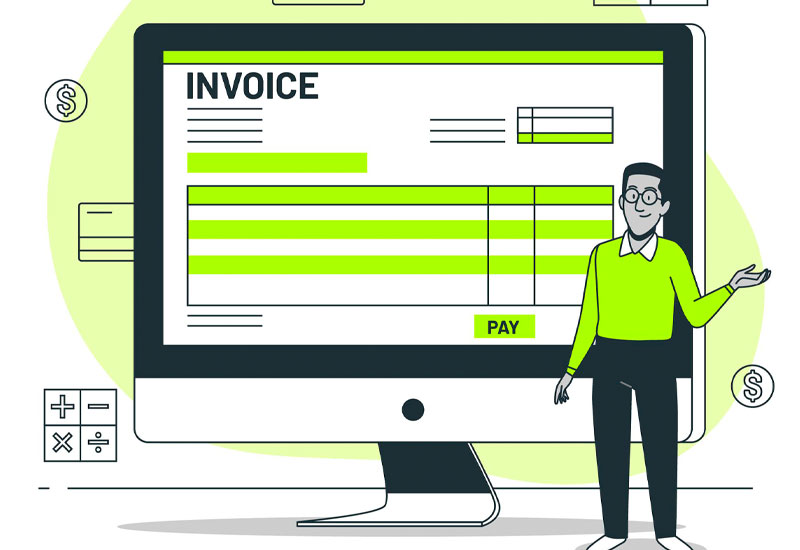Best Invoicing Software for Small Businesses in 2024
In today’s competitive business landscape, every small business owner needs to be efficient and organized. One of the most important tasks for any business is getting paid on time. This is where invoicing software comes in.
Invoicing software can save you time and money by automating many of the tasks involved in creating and sending invoices, tracking payments, and managing your finances.
Here are some of the benefits of using invoicing software:
1. FreshBooks
Pros:
- User-Friendly Interface: FreshBooks is renowned for its intuitive design, making it ideal for small business owners who aren’t tech-savvy.
- Time-Tracking: It offers robust time-tracking features, allowing seamless integration into invoices.
- Automated Recurring Invoices: Perfect for subscription-based businesses, it simplifies the billing process for recurring clients.
Cons:
- Limited Reporting: While it is suitable for most small businesses, its reporting capabilities might be limited for some complex needs.
- Pricing: As your business scales, the pricing tiers might become expensive.
2. QuickBooks
Pros:
- Comprehensive Features: QuickBooks offers a wide array of features beyond invoicing, including accounting, payroll, and expense tracking.
- Customizable Templates: Tailor invoices to align with your brand, creating a professional image.
- Integration: It seamlessly integrates with various third-party apps, enhancing its functionality.
Cons:
- Learning Curve: It might take some time for new users to grasp the full range of its functionalities.
- Cost: More advanced features are available in higher-priced plans, potentially making it expensive for smaller businesses.
3. Zoho Invoice
Pros:
- Affordability: Zoho offers competitive pricing, making it a suitable choice for budget-conscious businesses.
- Automation: It streamlines processes by automating recurring invoices and payment reminders.
- Client Portal: Allows clients to access invoices and make payments easily.
Cons:
- Limited Integrations: Compared to some competitors, Zoho might have fewer integrations available.
- Customization: While it offers customization, it might not be as flexible as some other platforms.
4. Wave
Pros:
- Free to Use: Wave offers free invoicing software, making it an attractive option for startups and small businesses.
- Ease of Use: It boasts a simple and straightforward interface.
- Excellent Customer Support: Users praise Wave for its responsive customer service.
Cons:
- Limited Advanced Features: Compared to paid platforms, Wave might lack some advanced functionalities required by growing businesses.
- Bank Reconciliation: Some users have reported issues with bank reconciliation features.
5. Xero
Pros:
- Scalability: Xero is suitable for businesses of all sizes, offering scalability as your business grows.
- Inventory Management: Apart from invoicing, it provides robust inventory management features.
- Strong Reporting: Offers comprehensive reporting capabilities, aiding in business analysis.
Cons:
- Pricing Structure: While competitive, the pricing might become cost-prohibitive for smaller businesses.
- Learning Curve: Similar to QuickBooks, it might require time to familiarize yourself with all its features.
In choosing the right invoicing software, consider your business’s specific needs, budget, and growth potential. While each of these options has its strengths and weaknesses, the ultimate choice should align with your business goals and operational requirements.
Before making a decision, take advantage of free trials or demos offered by these platforms. Test their functionalities, explore their interfaces, and assess how seamlessly they integrate into your existing workflows. With the right invoicing software in place, you can streamline your financial processes, enhance professionalism, and focus more on growing your business.
conclusion
In conclusion, finding the best invoicing software for your small business is about striking a balance between functionality, ease of use, and scalability. Each software mentioned—FreshBooks, QuickBooks, Zoho Invoice, Wave, and Xero—brings its own set of strengths and limitations to the table.
Consider your business’s specific needs, whether it’s streamlined invoicing, comprehensive financial management, scalability, or affordability. Take advantage of free trials or demos to explore these platforms and ensure they align with your workflows.
Remember, the perfect invoicing software isn’t a one-size-fits-all solution. What matters most is finding the right fit that empowers your business, simplifies your financial operations, and sets the stage for growth. Whether you prioritize intuitive design, robust features, or cost-effectiveness, the key is to make an informed decision that propels your business forward.











